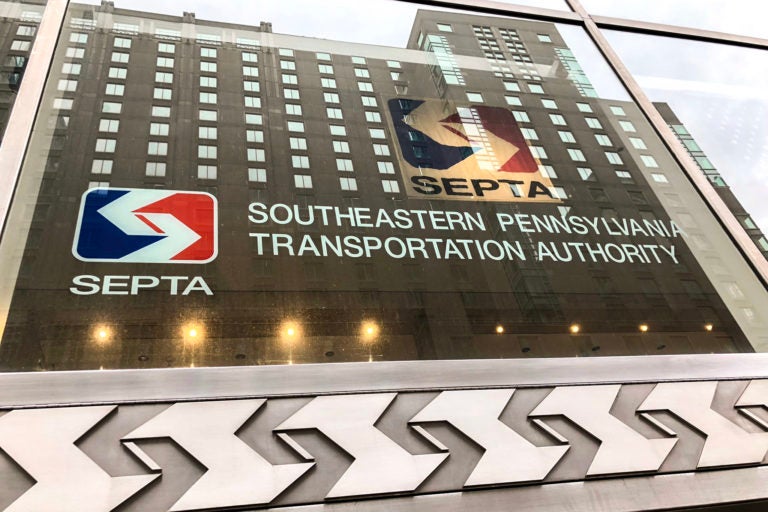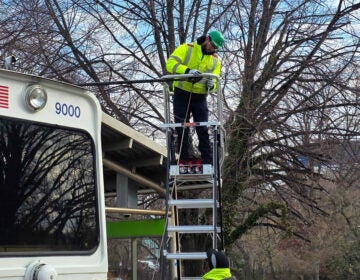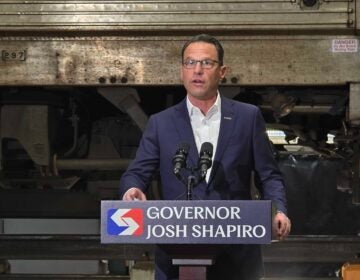Gauthier denounces SEPTA transfer fee as ‘regressive, plain and simple’
The new member of City Council gave the transit authority board a hard time about what is regarded as a burden on Philadelphia’s low-income riders.

SEPTA headquarters (Danya Henninger/Billy Penn)
City Councilmember Jamie Gauthier gave SEPTA board members a piece of her mind about the transfer fee during this month’s board meeting. She denounced the fee as “regressive, plain and simple.”
“Philadelphia is among the poorest big cities in America and has the most expensive public transit fee,” she said Thursday afternoon. “It just doesn’t add up, and we need to end this practice once and for all.”
SEPTA offers free transfers at only three Center City stations along the Market-Frankford Line that intersect with the Broad Street Line and/or the trolley lines. Otherwise, SEPTA Key holders pay $1 in addition to their discounted $2 fare to travel between service lines. Meanwhile, riders who use cash not only pay the full fare of $2.50, but they pay another full fare since the transit authority got rid of paper transfers in 2018.
Gauthier’s testimony before the board was met with applause from those present who also were advocating for free transfers.
The new councilmember is one of several against the fee, regarded as a burden on the city’s low-income riders. She and others rallying against the charge referred to a recent Pew study that found when “expressed as a percentage of income, the fares that Philadelphia residents pay are higher than those in all of the comparison cities.” The finding pushed forward a local conversation about eliminating the fee, providing a talking point for policy-change advocates.
Nat Lownes, a member of Philly Transit Riders Union, said SEPTA’s “complicated fare structures” puts riders and transit workers at odds.
“The people who have to deal with that are cashiers and riders,” said Lownes, an East Falls resident. “And they’re just getting angry at each other. These are all good reasons to get rid of the transfer fee.”
SEPTA general manager Leslie Richards said that she is committed to equity, but that the authority can’t afford to lose money.
“In order for us to provide our service,” said Richards. “It’s not free to provide that service. We have employees to take care of, we have fleets to take care of, we have assets, we have infrastructure that has to be taken care of, and none of that comes with a price tag at zero.”
SEPTA officials currently estimate transfer fees generate $14 million, representing 3% of their more $500 million revenue.
“We count on our revenue,” Richards said. “We have a small local share, and our revenue does really contribute to our funding. That’s why this is so difficult.”
Local subsidies accounted for more than $109 million in fiscal year 2020, about 11% of the total operating budget. Philadelphia contributed around $90 million.
Michael Carroll, SEPTA board member and deputy general manager of the Office of Transportation, Infrastructure, and Sustainability, said the dialog about transfer fees has come a long way in the seven years he has worked with the city.
“This was kind of off the table back then,” he said. “And now it’s not off the table. It’s more a question about if we do this, what are the sacrifices that we may need to make? And how do we identify a fare structure that’s fair for everybody.”
Carroll also reiterated that Mayor Jim Kenney’s administration supports ending transfer fees. Carroll referenced Connect, the city’s strategic transportation plan, which promises to “work closely with SEPTA during the Comprehensive Bus Network Redesign to find an opportunity to remove the transfer penalty while ensuring SEPTA’s firm financial footing.”
The authority expects to announce fare increases in mid-March, followed by public hearings in April and board consideration in May. If approved, the fare bump would be effective July 1, at the start of the new fiscal year. In light of this, Gauthier also suggested that SEPTA consider a reduced fare program for low-income riders — a program being implemented in New York City, and allow children under 12 to ride for free.
“This is just one more way we can encourage greater use of our city’s public transportation options,” she said before praising SEPTA as a world-class transportation system.
Gauthier also praised Richards’ commitment to equity but assured that come budget season, when SEPTA officials are looking for the city’s contribution to help fund their budget for the next fiscal year, she won’t let them off easy.
“The results of the budget will be out soon,” Gauthier said. “I plan to go through it and to ask questions about items that I see that don’t line up with the stated desire to have equity in our fares.”
The board also re-elected Pasquale “Pat” Deon of Bucks County as chairman of the board and elected Ken Lawrence of Montgomery County as the new vice-chairman. Deon praised the board for the re-nomination and addressed the support for free transfers.
“We hear everything they’re saying,” he said. “We take it to heart.”
WHYY is your source for fact-based, in-depth journalism and information. As a nonprofit organization, we rely on financial support from readers like you. Please give today.







